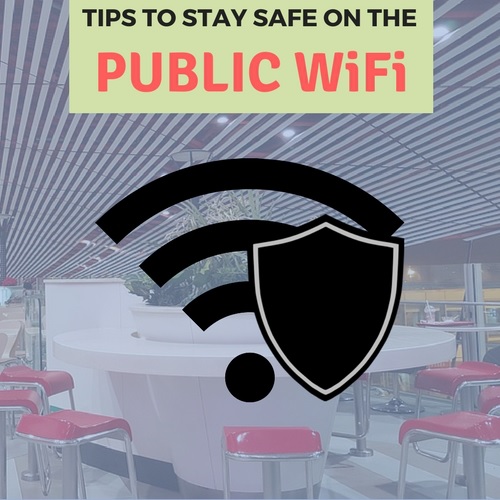

The number of public WiFi hotspots is well on the rise. Today, you can find them almost everywhere starting from your local railway station to the airport. The benefits of public WiFi are many, but so are its downsides. Let’s have a look at a few...
The number of public WiFi hotspots is well on the rise. Today, you can find them almost everywhere starting from your local railway station to the airport.
The benefits of public WiFi are many, but so are its downsides. Let’s have a look at a few of these now without any further ado.
Disadvantages of Public WiFi
Slow speed
Poor range
No reliability
Poor security

As far as all these cons are concerned, the most important thing that you should remember is the fact that a public network cannot protect you the same way a private network does, especially the one at your home.
Therefore, you must take a few safety measures of your own to protect your sensitive data from unscrupulous access while getting onto a public WiFi network. The following safety tips can come in handy for you.
Tips and tricks to staying safe on the public WiFi

1. The first thing that you should do is practice good internet hygiene
Practicing good internet hygiene is mighty important for you to do to keep yourself safe on a public WiFi network.
DO NOT handle sensitive information such as your bank account details and other confidential information on a public network.
It’s okay if you read a blog or watch a video or even post something new on your social media account, but accessing your online banking account on a public WiFi network is a terrible idea, on the whole. So avoid doing that at all possible cost.
2. Do not share data on a public WiFi network
File sharing is strongly inadvisable especially when you are connected on an unprotected public WiFi network. This is because this can make your files exposed to the outside world without you even being aware of the same.
Public file sharing on an unprotected network has high chances of your files getting intercepted on the way. And in most cases, you won’t even know that your data is robbed from you at your back.
This can really have a devastating consequence on you in case the files are sensitive in nature (like work account passwords, bank details, identification documents, and other similar things).
So why even take the chance? Turn file sharing off unless it is an emergency.
3. Always check whether it is the right network or not (before getting on it)
Have you ever heard of the “evil twins” concept? This is a popular concept that’s already been played in a whole lot of horror and thriller movies, in general.

Here’s how it usually works:
“Aalia and Aaliya are two girls who are identical to one another. Aalia’s an overall good girl and is usually overly-courteous to people, in general. Aaliya, on the other hand, is more on the naughtier side and involves herself in a whole lot of trouble.
But as a result of this identity mix-up, Aaalia sometimes get a fair share of the blame as well even though most of the mischief’s made on Aaliya’s end.”
The very same “evil twins” concept is applicable in case of a public WiFi network. Hackers can trick you into believing that you are connecting to the right hotspot when, in reality, it was a rogue one all from the start itself.
So always exercise caution while getting onto a public WiFi network. And don’t forget to check whether it really is the right network or not.
4. Take the aid of a VPN

A Virtual Private Network, also known as a VPN, helps in extending a private network across a public one.
In simple words, it can be said that a VPN helps in the creation of a secure and encrypted connection acting as some sort of a tunnel between the server operated by the VPN service and that of your PC.
A Virtual Private Network helps to ensure that your entire data stays encrypted between you and the internet service provider. It plays a significant role in locking out people trying to sneak into your network for any reason whatsoever.
So use VPN to your advantage while accessing a public WiFi network. It’s safer and more convenient.
5. Use HTTPS Everywhere to your advantage
HTTPS Everywhere comes in the form an extension that you can install for free on your respective web browsers.
This extension won’t be supported by every site. But if you are in luck, this add-on will try its best to get you over to the more secure version of the site for your own good.
Yes, this is definitely not a permanent solution, but it’s worth a try for sure.
So that’s pretty much it. Hope you found the tips handy for your purpose. Stay blessed; stay safe. Adieu!
Tell us your learning requirements in detail and get immediate responses from qualified tutors and institutes near you.
Post Learning Requirement